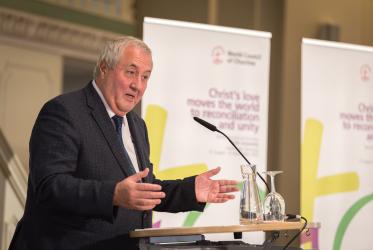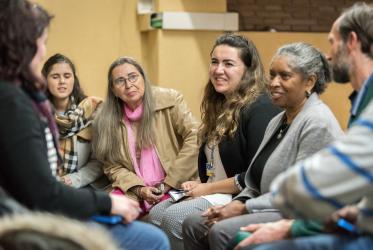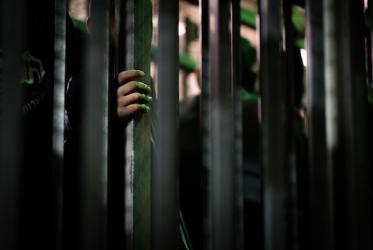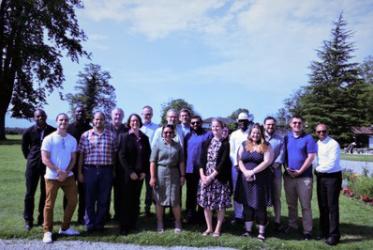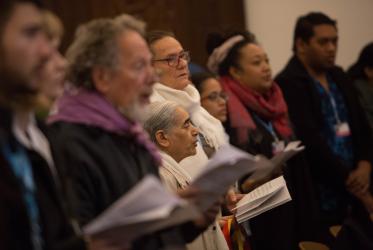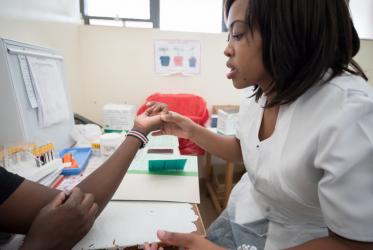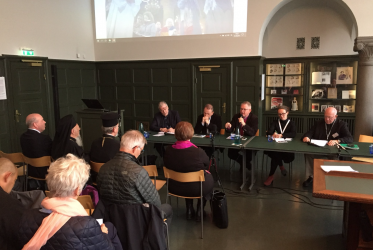Displaying 1 - 20 of 49
Dr Abuom reflects on women of faith as healers of creation
05 October 2021
Rethinking Ecological Relationships in the Anthropocene era
11 - 13 February 2021
Bossey gathers students for interreligious dialogue
02 July 2019
Faith groups at COP24 advocate for just transitions
05 December 2018
Global Health Histories Seminar: Faith in Universal Health Coverage
17 October 2018
Ecumenical Centre, Geneva
Paving the way for ecumenical studies, learning English in Bossey
24 September 2018
#WCC70: Nathan Söderblom, ecumenical pioneer
29 August 2018
WCC conference considers “Just Peace with Earth”
16 October 2017

